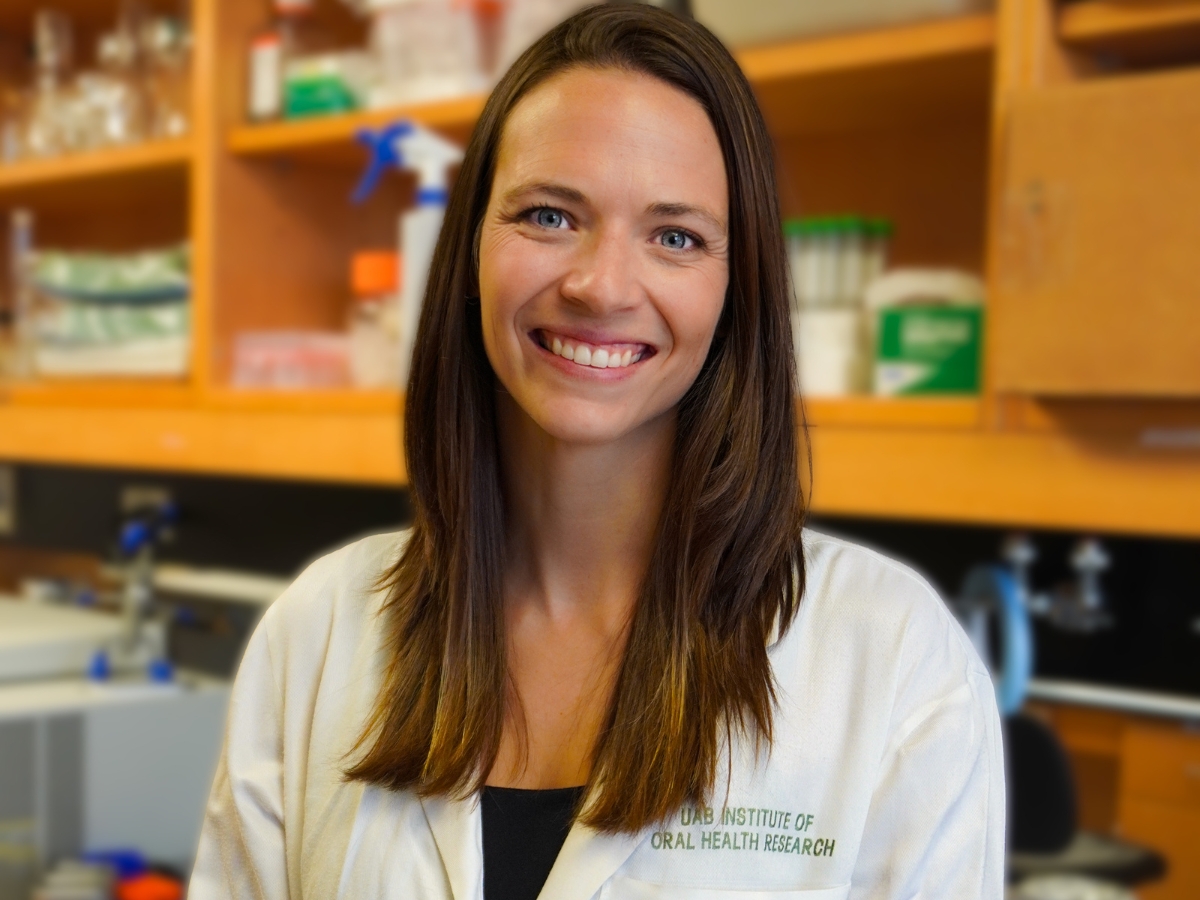When it comes to training the next generation of dental researchers and academicians, the University of Alabama at Birmingham School of Dentistry’s DART program hits the bullseye.

Officially known as the Dental Academic Research Training program, DART is an interdisciplinary training program supported by the National Institutes for Health (NIH) National Institute of Dental and Craniofacial Research (NIDCR). UAB is one of only 10 dental schools in the country that offers all four training tracks, including the foreign-trained dentist track.
The UAB DART program was established in 2007 as a T32 grant, which was later transitioned to a T90/R90 grant in 2012. In 2022 the SOD received a five-year, $3.2 million NIH grant renewal to continue the program.
“DART covers both academics and research,” says SOD associate dean of research Amjad Javed, Ph.D., and director of the DART program. “Science has always been the foundation for all the cutting-edge discoveries. Which new treatment works? How does it work? What is the evidence? Each time we discover something new, that knowledge gets transmitted into a textbook and then put into practice.
“The ultimate goal of our DART program is to train the next generation of dental clinicians and scientists and to build the highly skilled research workforce in academia.”
To accomplish this, DART aims to provide trainees with a collaborative, research-intensive academic environment. The program offers four training tracks: a D.M.D./Ph.D. dual degree program, regular pre-doctoral and post-doctoral programs, and a post-doc designed specifically for foreign-trained dentists.
You do not have to look outside the halls of UAB to see the success of DART in developing academicians. Several former DART trainees are now UAB faculty members, including Ejvis Lamani, D.M.D., Ph.D.; Nate Lawson, D.M.D., M.A., Ph.D.; Mohamed A. Khass, M.S., Ph.D.; Jessica Scoffield, Ph.D. (Department of Microbiology); 2022 graduate Tanner Godfrey, D.M.D, Ph.D. (currently in the UAB Orthodontics residency program); and Hope Amm, Ph.D.
“I received a lot of opportunities through DART to gain the experiences I needed to become faculty,” says Amm, who completed her program training in 2013 and then became an assistant professor with the SOD in 2017. “We had interactions with the American Association for Dental, Oral and Craniofacial Research, and I was able to be a member at-large for their National Student Research Group. And there were a lot of different events where we could interact with faculty on a meaningful level and get feedback from them.”
“These were opportunities that you don’t get as a regular post doc, and they were available to me only through DART. It’s the type of support that is highly valuable to trainees.”
 McCullough says DART has enabled her “to grow professionally and scientifically.”Current DART trainee Kayla McCullough is enjoying a similar experience. She began her D.M.D./Ph.D. track in 2020 after receiving her Masters in Oral Biology from the UAB SOD. McCullough says DART has enabled her “to grow professionally and scientifically.”
McCullough says DART has enabled her “to grow professionally and scientifically.”Current DART trainee Kayla McCullough is enjoying a similar experience. She began her D.M.D./Ph.D. track in 2020 after receiving her Masters in Oral Biology from the UAB SOD. McCullough says DART has enabled her “to grow professionally and scientifically.”
“For my future career in academia, this program really opens the doors to network with other individuals within the UAB School of Dentistry and also other schools,” McCullough says. “It provides funding and research opportunities that allow me to present at different symposiums, and it’s helped paved the way for my NIH grant.”
“Upon completing the dentistry side of my education, I hope to stay at UAB to teach students and continue my research in academia. So this program is exactly the path I hope to continue following, and DART is showing me how to do each step along the way.”
Javed says programs such as DART are needed because of the shortage of dental academicians nationwide. The UAB SOD’s association is critically important, he says, because it is the only dental school in the Deep South outside of the state of Florida that offers this level of training. Filling that void helps draw national attention for the SOD.
“The DART program is such a magnet that helps us attract the best talent and most qualified students from throughout the country,” Javed says. “When a student is looking at why to come to UAB, they see our national profile with DART and the possibility of learning not only the best clinical practices but also the best evidence-based research.”
“The students we have trained through DART have been very successful in carrying the torch for the next generation. They will be at the forefront in leadership positions when policies for oral health are being discussed. They are setting the standard for the future.”